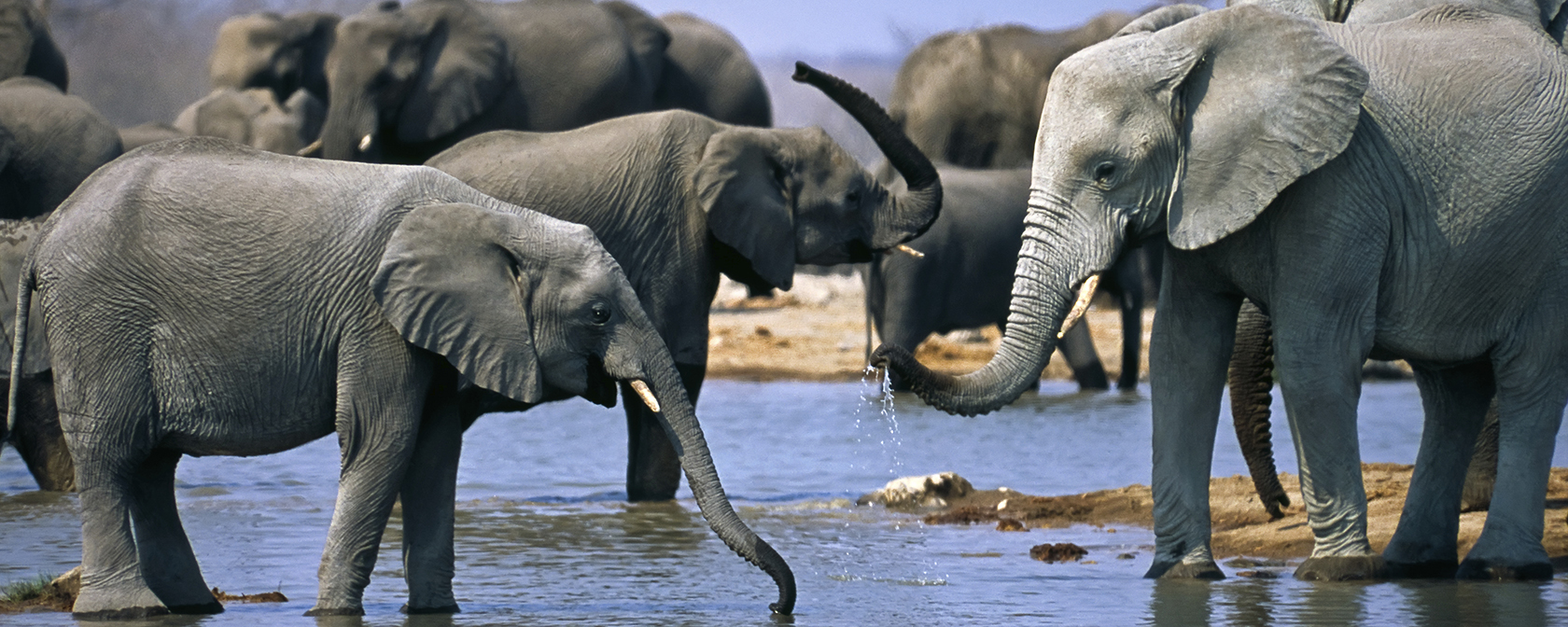By Sara Amundson and Kitty Block
Since 2017, U.S. Sen. Dan Sullivan has introduced a bill that would undermine America’s war on ivory trafficking by hindering the ability of states to create laws fighting this illegal trade. The full Senate did not consider the bill the last time, and more Americans than ever before now emphatically oppose ivory trafficking, but Sen. Sullivan apparently failed to get the message.
The Alaska Republican's bill, Empowering Rural Economies Through Alaska Native Sustainable Arts and Handicrafts Act, S. 804/H.R. 1806, which he is pushing again this year, would prohibit states from regulating the intrastate sale and trade of ivory from mammoth, walrus and other marine mammals within their borders. It was approved by a Senate committee today and once again we’ll be watching and working to make sure it doesn’t go any further.
The reason Sullivan’s bill poses a problem is because allowing legal trade in ivory from certain animals can—and does—provide an easy cover for those who traffic in illegal ivory, including elephant ivory, and drives market demand for such products. Walrus ivory is often sold alongside elephant ivory products, without any documentation to prove the legality and origin of the item. It’s difficult for an average consumer to tell the difference between old and new ivory, or elephant and walrus or mammoth ivory; even law enforcement officials can’t do it without the help of highly specialized detection experts.
As our investigations of U.S. ivory markets in recent years have shown, vendors often cannot provide proof of where the ivory they are selling comes from or whether it is new or antique. The U.S. Fish and Wildlife Service has also reported similar problems during its own criminal investigations and anti-smuggling efforts.
It is only by significantly restricting ivory trade in the United States that we can make laundering illegal elephant ivory into the market more difficult and reduce the demand for it. The United States is among the world’s largest markets for wildlife goods, both legal and illegal, including elephant ivory. Poachers brutally kill elephants and remove their tusks, sometimes while the animal is still alive. The illegal wildlife trade, a multi-billion-dollar enterprise, also fuels transnational crime, including terrorism. These concerns led to the Obama administration implementing a near-complete ban on the nationwide ivory trade in 2016. But although that law prohibits the import of most ivory into the United States and sales of ivory across state lines, it doesn’t apply to ivory sales within state borders.
Some states have been quick to close that loophole and to date, 11 states, including California, Hawaii, New Jersey, New Mexico, New York, Nevada, Oregon, Washington, Illinois, New Hampshire and Minnesota, and the District of Columbia, have passed anti-wildlife trafficking laws to align state and federal efforts to combat wildlife crime and restrict or reduce market demand for ivory and other imperiled species products in the United States.
Certain states have included walrus ivory in their anti-wildlife trafficking measures to ease enforcement burdens and protect consumers from the illegal ivory trade.
For the Humane Society family of organizations, ending ivory trafficking around the world has been a priority. In addition to supporting federal and state efforts to end its sales in the United States, we are working to end the ivory trade in countries like Japan, the world’s largest market for ivory. The rampant legal trade there is even undermining a ban on the ivory trade in neighboring China. Since 2009 more than 5.4 metric tons of ivory have been illegally exported from Japan to China. Humane Society International has been working with partner groups Japan Tiger, Elephant Fund and the Environmental Investigation Agency to shut down the commercial ivory trade in Japan.
In Canada, the Ivory-Free Canada Coalition, a partnership of Canadian non-profit organizations, including Humane Society International/Canada, the Jane Goodall Institute of Canada, World Elephant Day, Elephanatics and the Global March for Elephants and Rhino-Toronto, is working towards a national ban on the domestic sale and trade of all elephant ivory, including hunting trophies.
We cannot work fast enough to save elephants. Studies show the African savanna elephant population has declined by 144,000—or 30% of the total population—since 2007. Scientists estimate some sub-populations of the African elephant could be extinct in a decade if poaching for ivory continues at the current rate. Our deepest thanks to Sen. Maria Cantwell, D-Wash., who spoke out at the committee meeting today on behalf of preserving progress in the fight to keep ivory off the market. The need of the hour is not to set the clock back on all the good work that’s been done so far, as Sen. Sullivan’s bill would do; it is to move even more purposefully toward wiping out the cruel and dangerous ivory trade wherever it exists.
Kitty Block is President and CEO of the Humane Society of the United States.




